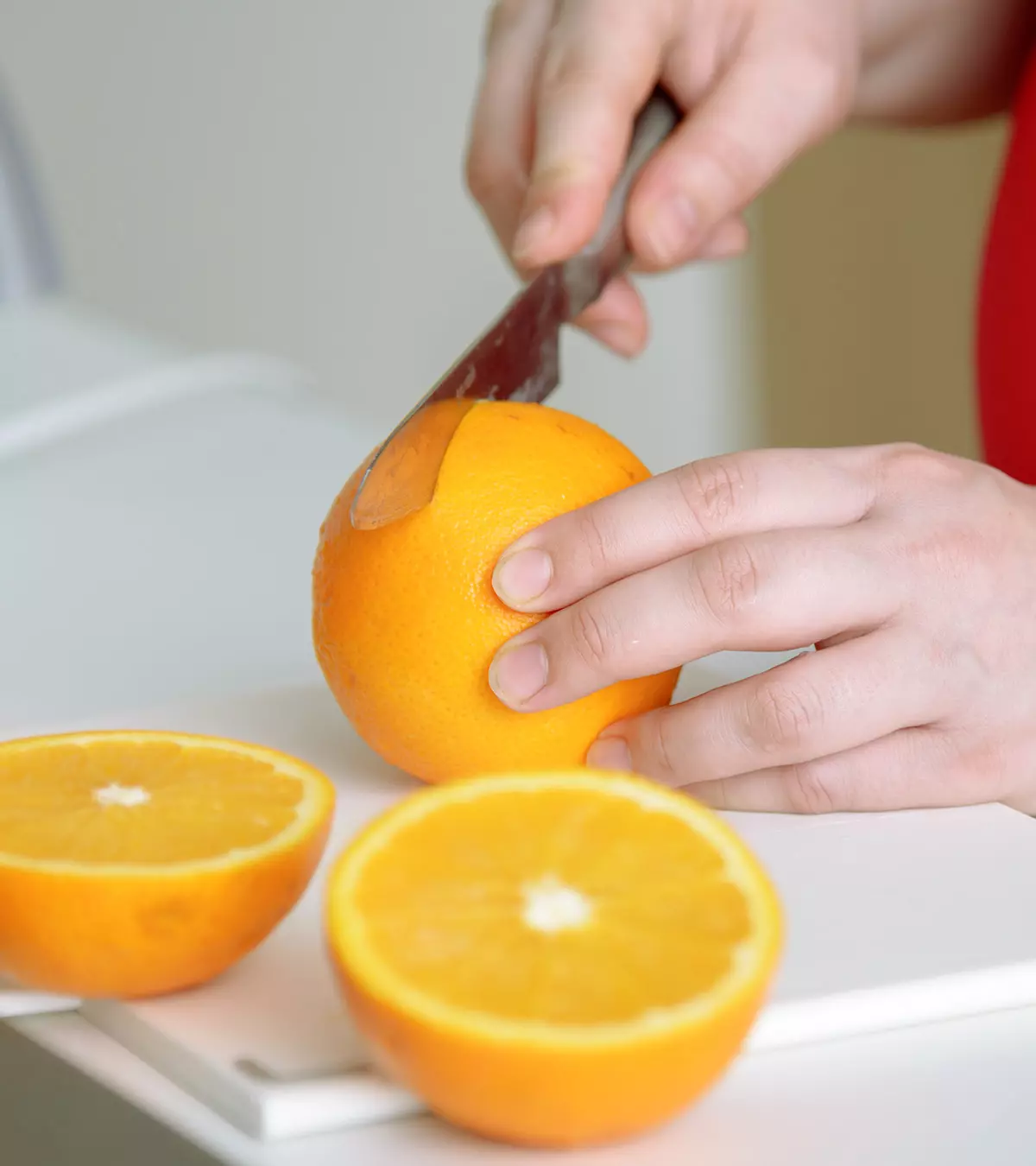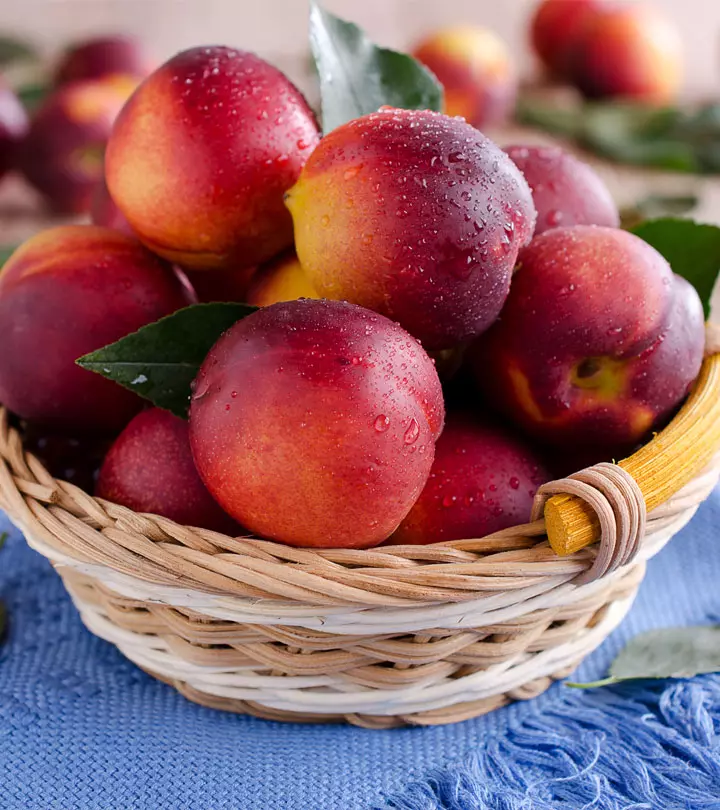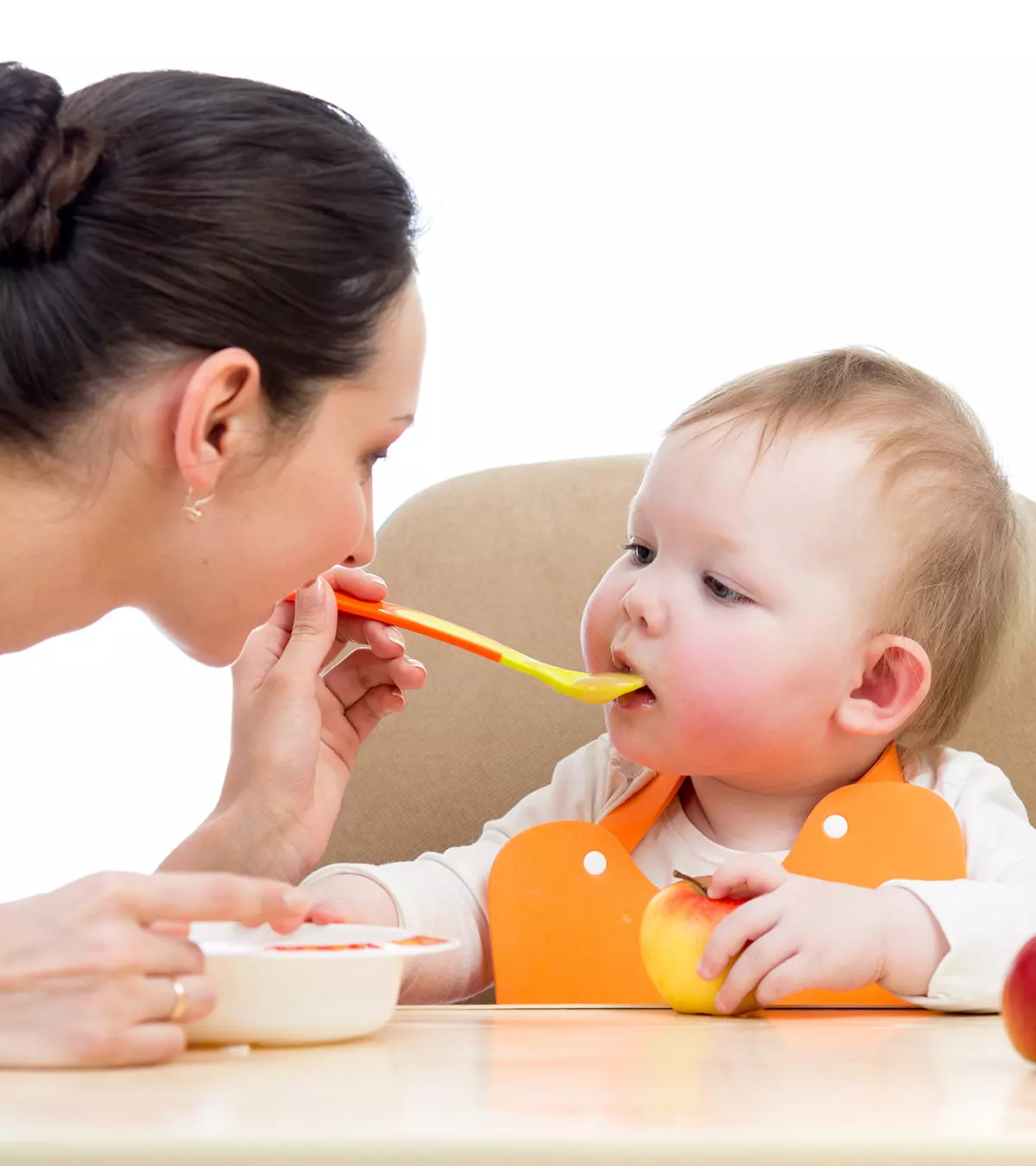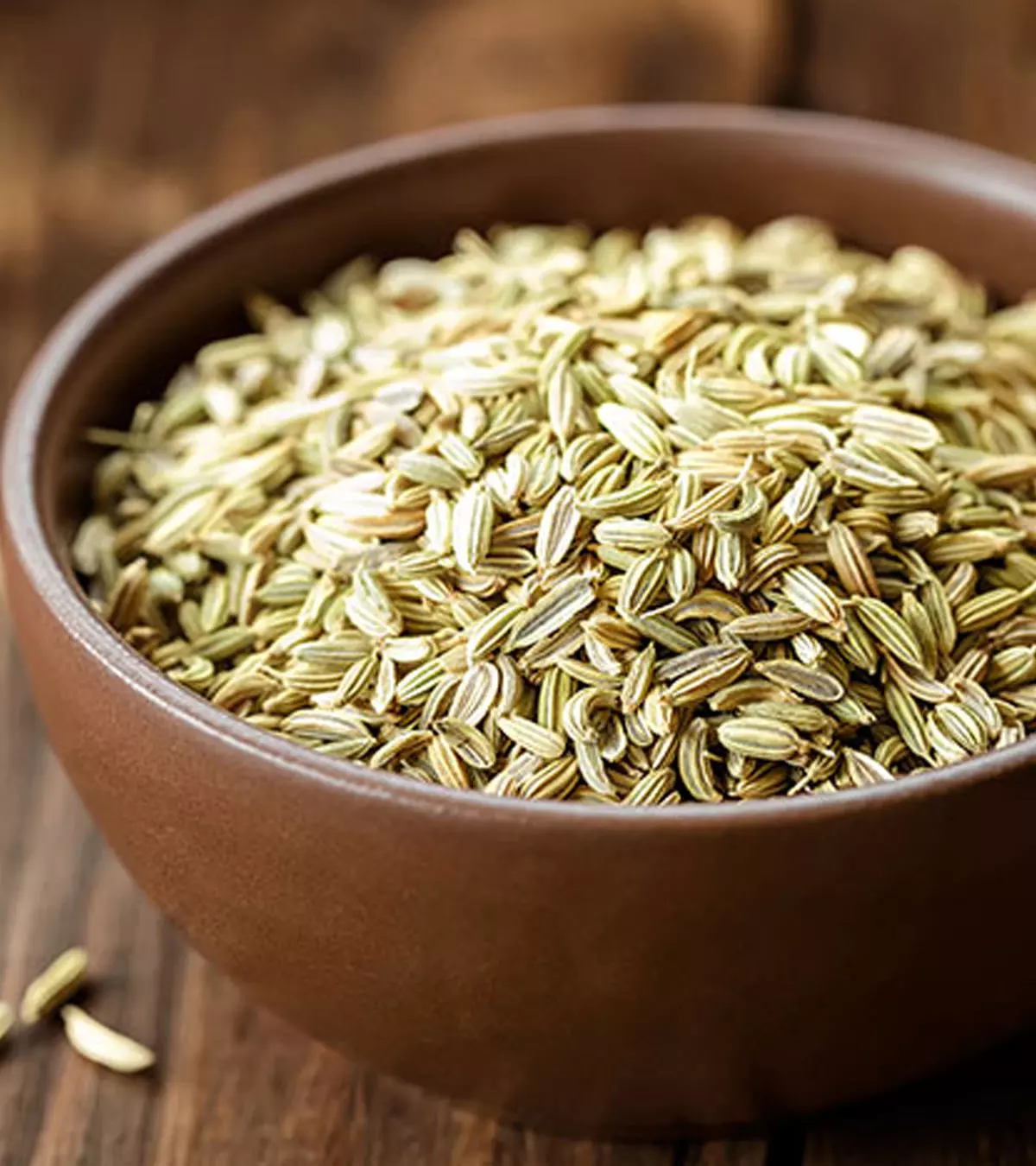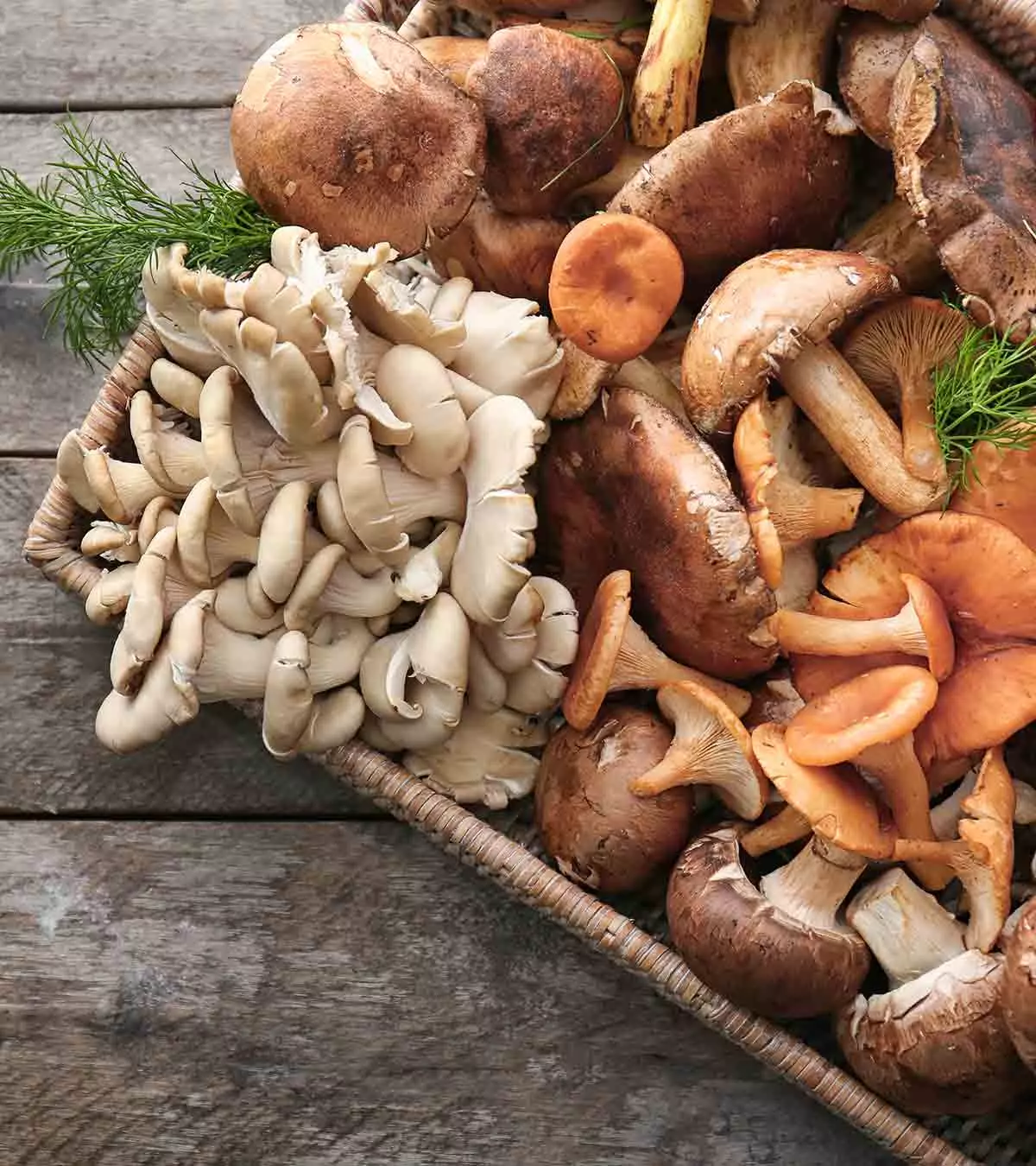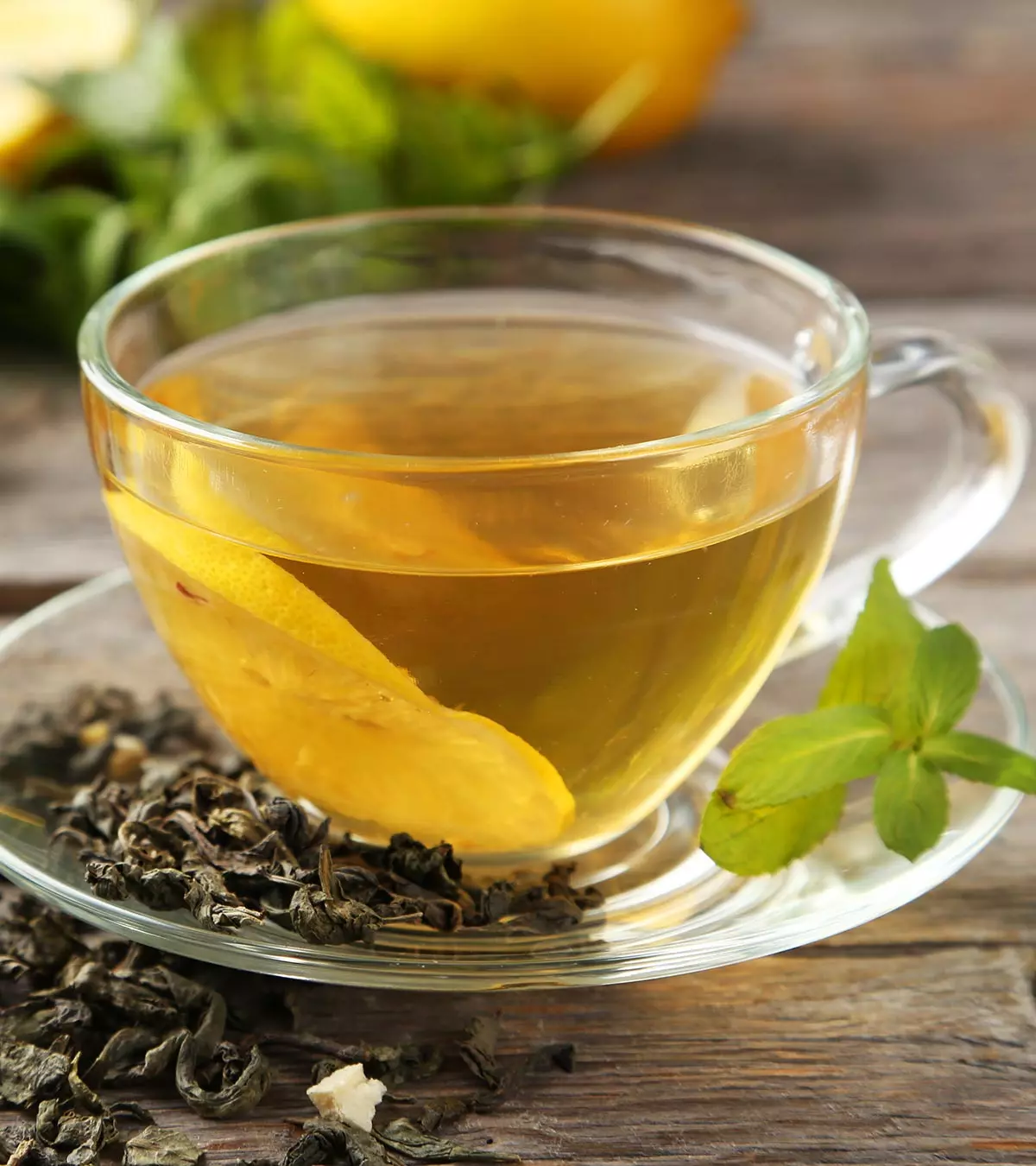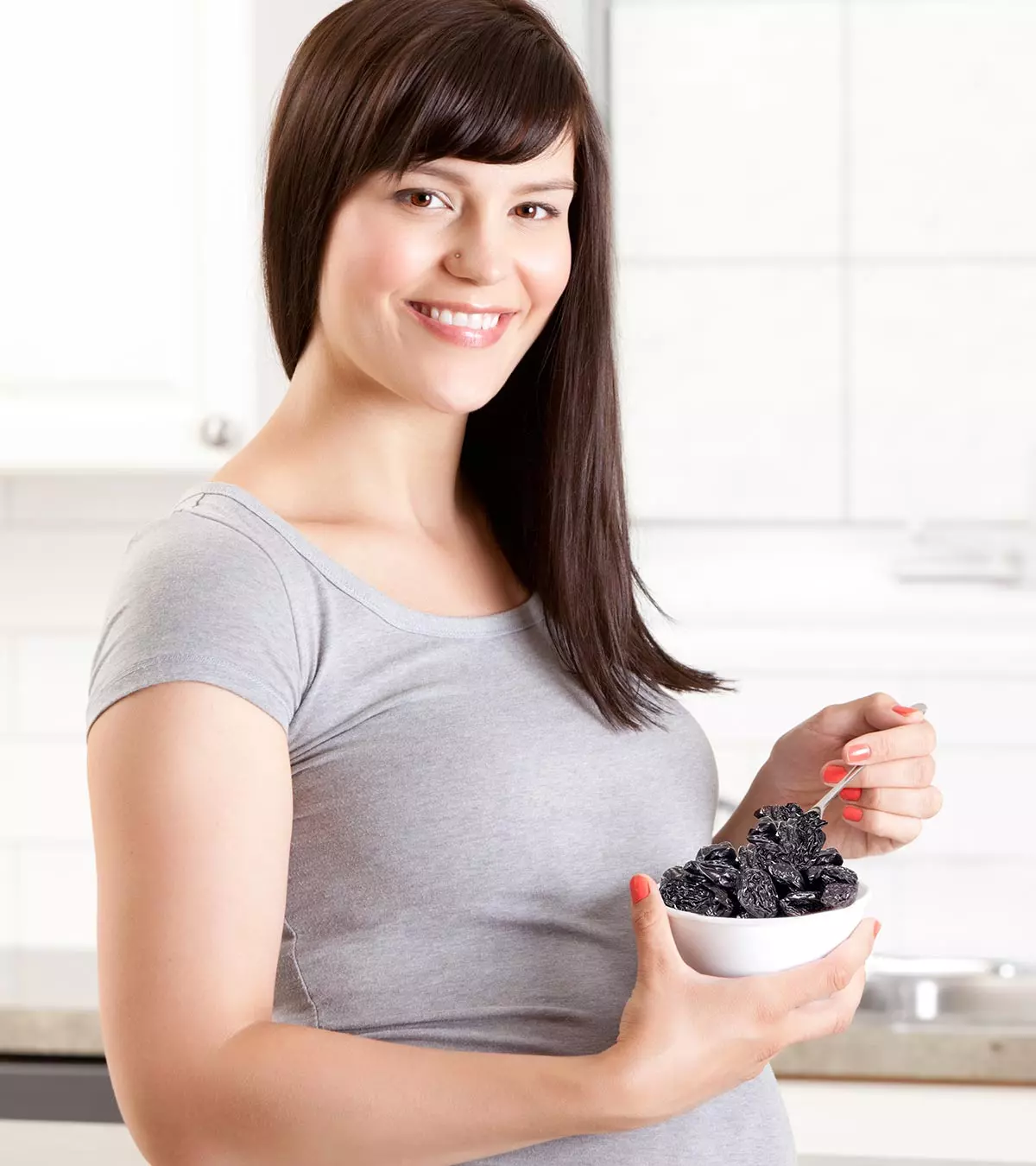
Image: ShutterStock
Your little one will be stepping into their 20th month soon, and they may begin to throw food tantrums more often. Therefore, keeping some 20 months old baby food ideas handy could help relieve some of your worries. As toddlers approach their second birthday, their food habits and interests keep changing. Also, your little one is undergoing rapid physical and mental growth and development during this time. Therefore, you must make appropriate food choices to support their growth and maintain their nutritional requirements. Read on as we bring some important foods to include in your 20 months baby’s diet, tips, and helpful techniques to feed your fussy eaters.
Key Pointers
- A 20-month-old baby’s diet should consist of nutritious staples, protein, dairy, fruits, vegetables, and limited fats and sugars.
- A balanced meal portion should include veggies, seasonal fruit, or juice, plus servings of rice, bread, meat, dairy, and lentils.
- Mealtimes should be pleasant, fun, and not forced, with appropriate portion sizes, and snacks can be offered after a few hours if necessary.
- Parents should be good role models and involve their child in meal preparation to develop a healthy relationship with food.
- Introduce new foods in small portions to watch for allergic reactions or digestive discomfort, and offer foods in different forms to prevent choking.
Must-Haves For A 20 Months Old Baby Food
The food for a 20-month-old baby should be nutritious and rich in vital nutrients such as iron, calcium, and vitamins. Your toddler’s diet should include the following (1):
- Staples such as rice, breads, and pasta

Toddler’s meals can be homemade, or ready-made baby foods, or a combination of both. Your selection should ensure that his meals contain adequate nutrition.
All About Serving It Right
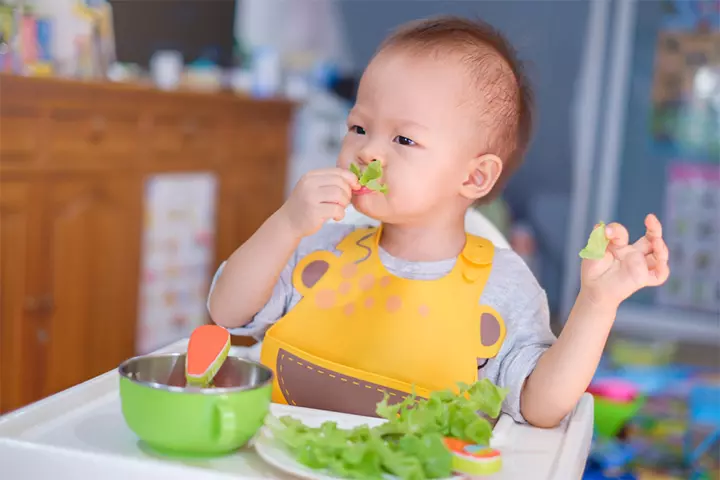
If you want to ensure your toddler has nutritious meals, you can follow these portion recommendations.
- Serve them one cup of vegetables daily.
- Include a daily serving of one cup of seasonal fruits or approximately six ounces of fruit juice.
- Ensure that they eat three servings of ½ cup of rice, bread, or cereals, or a slice of bread daily.
- Add two daily servings of an egg or an ounce of meat or lentils to their balanced diet plan.
- Give them two daily servings of a cup of milk or yogurt or two ounces of cheese (natural or processed).
Introducing healthy eating habits from an early age can prove to be a positive step toward raising a healthy and strong child.
 Experts say
Experts sayTips To Make Your 20-Month-Old Baby Eat Better

As your baby tends to be fussy about eating, creating a pleasant mealtime experience can help them be healthier and happier. Advance meal planning can help you offer a variety of food items to your child. Adding baby-led weaning foods to your toddler’s platter can also help develop their taste, preferences, and interests better.
Texture exploration can help to improve the mealtime experience for your picky eater. Experiment with different nutritious ingredients and new recipes to tantalize their tiny taste buds and ensure optimal nutrition for the baby.
- Mealtimes should be fun and not a battle. You should not force or bribe your child to finish his meals.
- Portions should be just right. Do not indulge your baby by serving what he likes in excess, as it can lead to a feeling of bloating and indigestion.
- Do not lose heart if your child has not had enough at lunch. Offer them a small portion of healthy snacks. Vegetable sticks with hummus, rice cereal or oatmeal, and fruit yogurt are nutritious snacks for toddlers.
- Dinner time should be the perfect time for the family to bond together. The ambiance should be cheerful, and you should establish a routine for mealtimes. It should be an event that your baby looks forward to and enjoys.
- As your baby grows, you have to try and be a good role model for him. As a parent, if you follow healthy eating habits then your toddler too will learn to eat right soon.
 Quick tip
Quick tipPoints To Remember
Here are some handy tips to feed your toddler (3):
- Your toddler continues to grow and develop, mealtimes can also serve as an opportunity to encourage developmental milestones. He can now sit up in his chair and enjoy mealtimes with the family. At this stage, toddlers can eat mashed food and are capable of chewing food as they have a few milk teeth. So you should allow him to mess around with a bowl and spoon or grasp tiny portions of finger foods and enjoy.
- When introducing a new food item to your toddler, only serve him a small portion to watch out for any allergic reaction or digestive discomfort. It is wise to avoid foods that commonly trigger allergies, such as shellfish, peanuts, eggs, or certain types of cereals. Also, remember your family’s history of food allergies while meal-planning and go for allergy-friendly options.
- You can prevent choking by offering foods in different forms such as semi-solid and pureed mashed. You may also chop them into bite-sized pieces to make it easier for your toddler to eat.
Food Recipes For 20-Month-Old-Babies
Below are some simple, tasty, and nutritious recipes for a 20-month-old baby’s diet.
1. Oatmeal With Banana
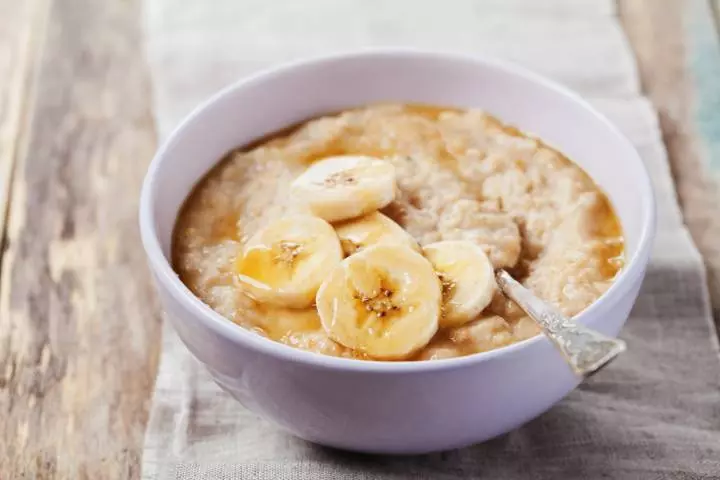
You Will Need:
- 1 cup rolled oats
- 1 cup almond milk
- 1 banana (sliced)
- 1tbsp cinnamon powder
How To:
- Add oats to a pan and cook them with almond milk, stirring occasionally.
- Once oats are well-cooked, add cinnamon powder.
- Transfer to a bowl, top with sliced banana, and serve warm.
2. Pumpkin Mac And Cheese
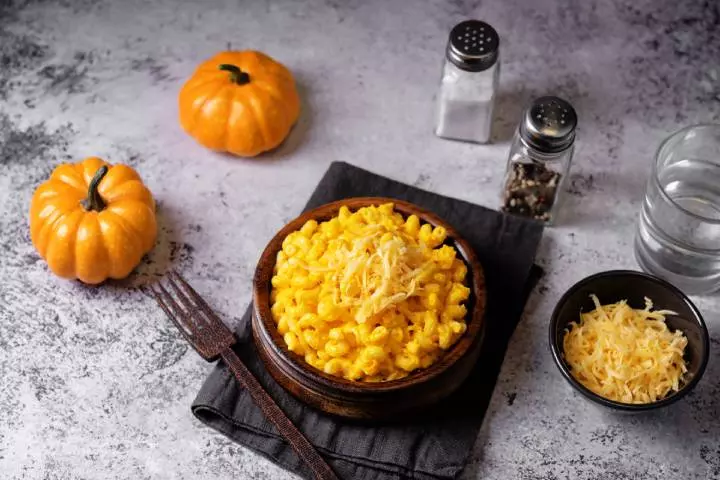
You Will Need:
- 1 cup canned pureed pumpkin
- 1 cup whole wheat macaroni pasta (cooked)
- ½ cup cheddar cheese (shredded)
- ½ cup whole milk
- ½ cup broccoli florets (boiled)
- Pepper powder as per taste
How To:
- In a blender, combine the pumpkin puree, milk, and cheese. Blend it until you get sauce consistency. Add more milk if needed.
- Add the sauce in a pan, and add the pasta, broccoli, and pepper. Cook it for three to five minutes.
- Take it out in a bowl and serve warm.
Frequently Asked Questions
1. Is it common for a 20-month-old not to eat?
Yes, it is often common for a 20-month-old to avoid eating (4). Some common reasons for it include variations in growth, smaller stomachs, distractions, and the need to assert independence.
2. How many meals should a 20-month-old eat?
You may serve three meals and two or three healthy snacks a day. However, be prepared to watch them skip one or two of these meals (5).
3. How often should I feed my 20-month-old?
You may feed your baby every two to three hours or five to six times a day (6).
Deciding on new snack ideas and recipes for your 20-month-old every day might become tedious after a certain time. Therefore, we hope that this list of 20 months old baby food ideas will surely come in handy for you at such times. You can easily prepare these recipes with simple ingredients and also add in a few alternative choices of vegetables that your baby likes to devour. These recipes are a healthy choice for your little one and will also help you bring a variety to their taste buds.
Infographic: Food Options For 20-Month-Old Babies
Babies and toddlers should be given diverse foods to support their mental and physical development. So, are you looking for healthy food options for your baby? Go through the infographic below to know what you can feed your 20-month-old baby. Illustration: Momjunction Design Team
Illustration: 20 Months Old Baby Food Ideas
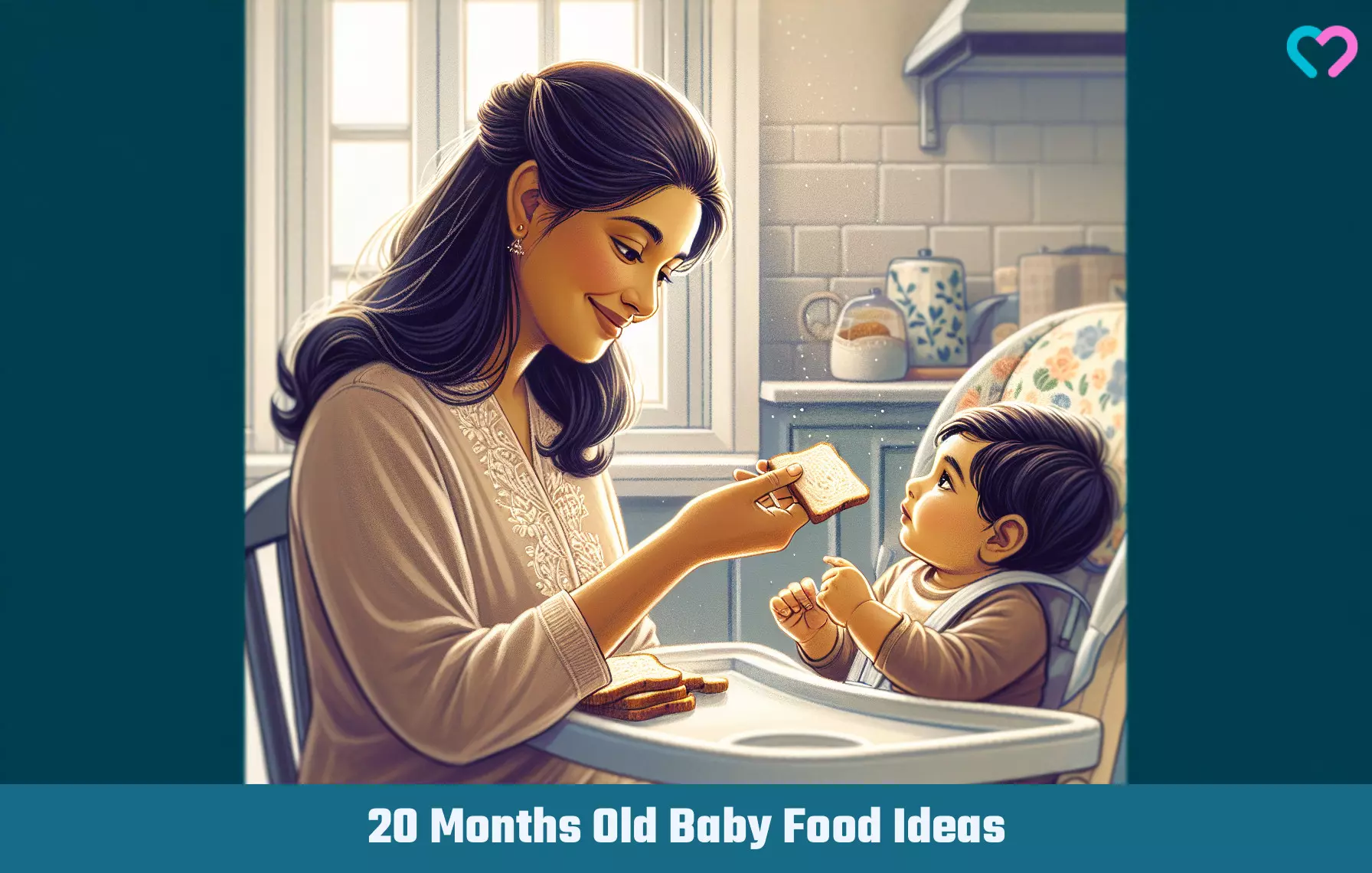
Image: Dall·E/MomJunction Design Team
Create a daily routine and food chart for your 1-2-year-old toddler through an informative video guide. Discover complete diet plans and nutritious baby food recipes, along with valuable tips for your child’s well-being.
References
- Healthy Eating for 6 to 24 month old children (1) Getting Started.
https://www.fhs.gov.hk/english/health_info/child/14727.html - When Your Toddler Doesn’t Want to Eat.
https://familydoctor.org/when-your-toddler-doesnt-want-to-eat/?adfree=true - Feeding & Nutrition Tips: Your 2-Year-Old.
https://www.healthychildren.org/English/ages-stages/toddler/nutrition/Pages/Feeding-and-Nutrition-Your-Two-Year-Old.aspx - Toddler not eating? Ideas and tips.
https://raisingchildren.net.au/toddlers/nutrition-fitness/common-concerns/toddler-not-eating - Feeding Your 1- to 2-Year-Old.
https://kidshealth.org/en/parents/feed12yr.html - What to Feed Toddlers 12-24 Months.
https://healthyeatingresearch.org/wp-content/uploads/2021/08/What-to-feed-12-24-month-olds.pdf - Serving Sizes for Toddlers
https://www.healthychildren.org/English/ages-stages/toddler/nutrition/Pages/Serving-Sizes-for-Toddlers.aspx - Eating tips for older toddlers.
https://www.betterhealth.vic.gov.au/health/healthyliving/eating-tips-for-older-toddlers#tips-for-feeding-older-toddlers
Community Experiences
Join the conversation and become a part of our nurturing community! Share your stories, experiences, and insights to connect with fellow parents.
Read full bio of Dr. Dur Afshar Agha
Read full bio of Jessica Albert
Read full bio of Swati Patwal
Read full bio of Vidya Tadapatri







